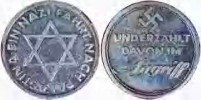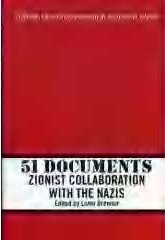Ukrainia
The Rada was based on village schoolteachers and other language enthusiasts, steeped in the “glorious” history of the Ukraine – that is Bogdan Zinovy Chmielnicki’s seventeenth-century Cossack revolt against Poland, during which the enraged peasantry massacred 100,000 Jews whom they saw as middlemen working for the Polish Pans (nobles). Nationalist ideology reinforced the “Christ-killer” venom which was poured into the illiterate rural masses by the old regime. Anti-Semitic outbreaks were inevitable in such an ideological climate, but the Zionists were taken in by promises of national autonomy, and rushed into the Rada. In January 1919 Abraham Revusky of the Poale Zion took office as Petliura’s Minister for Jewish Affairs. [i] Meir Grossmann of the Ukrainian Zionist Executive went abroad to rally Jewish support for the anti-Bolshevik regime. [ii]
The inevitable pogroms started with the first Ukrainian defeat at the hands of the Red Army in January 1919, and Revusky was compelled to resign within a month when Petliura did nothing to stop the atrocities. In many respects the Petliura episode destroyed the mass base of Zionism amongst Soviet Jews. Churchill lost his gamble: Trotsky, not Weizmann and not Revusky, was to win the soul of the Jewish masses.
Lithuania
Lithuanian Zionist involvement with the anti-Semites was likewise a failure, although, fortunately, Lithuania did not generate significant pogroms. The nationalists there were in an extremely weak position. Not only did they face a threat from Communism, they also had to struggle against Poland in a dispute over the territory around Vilna. They felt compelled to work with the Zionists, as they needed the support of the considerable Jewish minority in Vilna, and they also overestimated Zionist influence with the Allied powers whose diplomatic assent was a requirement if they were ever to gain the city. In December 1918 three Zionists entered the provisional government of Antanas Smetona and Augustinas Voldemaras. Jacob Wigodski became Minister for Jewish Affairs, N. Rachmilovitch became Vice-Minister for Trade and Shimshon Rosenbaum was appointed Vice-Minister for Foreign Affairs.
The bait again was autonomy. Jews would be given proportional representation in government, full rights for Yiddish, and a Jewish National Council would be given the right of compulsory taxation of all Jews for religious and cultural affairs. Non-payment of tax would only be allowed for converts. Max Soloveitchik, who succeeded Wigodski at the Jewish Ministry, enthused that “Lithuania is the creative source of the future forms of Jewish living”. [iii]
By April 1922 the Lithuanian government felt it could begin to move against the Jews. The Vilna Corridor was definitely lost to Poland and the Polish Army stood between Communism and the Lithuanian border. Smetana’s first move was to refuse to guarantee the institutions of autonomy in the constitution. Soloveitchik resigned in protest, and went to join the WZO Executive in London. The local Zionists tried to deal with the problem by forming an electoral bloc with the Polish, German and Russian minorities. This little extra muscle made the government slow its pace, and Rosenbaum was given the Jewish Ministry by Ernestas Galvanauskas, the new Prime Minister. By 1923 the onslaught began again with parliamentary speeches in Yiddish being forbidden. By June 1924 the Jewish Ministry was abolished; by July Yiddish store signs were outlawed; in September the police scattered the National Council, and Rosenbaum and Rachmilovitch moved to Palestine. By 1926 Smetana had set up a semi-Fascist regime which lasted until the Second World War take-over by Stalin. In later days Voldemaras and Galvanauskas openly assumed the role of Nazi agents in Lithuanian politics.
----------
i. Abraham Revusky, Encyclopedia Judaica, vol.14, col.134.
ii. Meir Grossmann, Encyclopedia Judaica, vol.7, col.938.
iii. Samuel Gringauz, Jewish National Autonomy in Lithuania (1918-1925), Jewish Social Studies (July 1952), p.237.



No comments:
Post a Comment